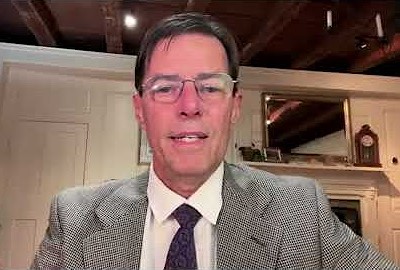IAED Webinar: Building a Free, Fair and Just Global Economy
- Sep 27, 2025
- 3 min read
Updated: Jan 13
Click Here to read the full conference report and find links to videos of all the presentations.
IAED, United States – Nine experts addressed the challenge of building a global economy that is fair, just and conducive to peace, in a two-day webinar organized by the International Association for Peace and Economic Development (IAED) on September 26-27. The international coordinator of IAED, Mr. Roger Wetherall, moderated the program, titled “Toward a Headwing Economy of Freedom, Peace and Shared Prosperity,” which was timed to support the UN International Day of Peace.
Presenters represented a wide range of nations and perspectives, and more than 160 participants joined the program from around the world. The conference was held over two days to allow for presentations and participation in different time zones.
The program opened with welcoming words from Dr. Tageldin Hamad, president of UPF International, who set the tone for the conference: “IAED is working to build a network of business and economic thought leaders, identifying the best ideas and examples for realizing an environment of peace and true economic development. When people can earn a living and provide for their families in a dignified way, it offsets the prospect of conflict and leads to peace and cooperation.”
Mr. Alan Jessen, coordinator of IAED for North America, then explained the “headwing” concept:
“Headwing economics is the search for a values-based, justice-driven economy that can deliver on mankind’s quest for a world of peace and harmony. Doing otherwise, we will have failed to address global issues, allowing materialism to diminish the value of human life.”
Next were testimonies of success in business and philanthropy from Australian businessmen Mr. Bruce Wong, originally from Cambodia, and Mr. Fouad Sobbi, originally from Kuwait, who shared their amazing stories of journeying from foreign countries to Australia. Starting with nothing, they both built successful businesses through practicing honesty, integrity and philanthropy in everything they did. Their examples showed how business can be an important pathway for people to serve their communities and do good in the world.
Renowned investor Mr. Jim Rogers provided his thoughts via video presentation, addressing the need to curb government regulation to allow the creative energy of entrepreneurs to shine through. This was followed by an academic and thought-provoking discussion of headwing economics by author and publisher Dr. Gordon Anderson.
Dr. Anderson pointed out: “Headwing economics, as a subset of headwing thought, emphasizes the roles of individuals as moral agents (the right wing) and social institutions as tools (the left wing) serving society’s well-being. In this model, left-wing thought ensures fair distribution through institutions, while right-wing thought fosters individual responsibility and moral growth.”
The second day included further exploration of key concepts of headwing economics. Dr. Thomas Ward, chair of the Peace Studies Program at the HJI Graduate School, provided his thoughts on Adam Smith’s early work, The Theory of Moral Sentiments, and explored the “effect theory of value” as a contrast to the Marxist “labor theory of value.”
Ms. Dawn Brohawn, co-founder of the Center for Economic and Social Justice, presented a new paradigm for financing business growth, using future savings to promote economic growth and universal citizen access to ownership of capital. Columbia University professor Dr. William Eimicke discussed the way that cross-sector partnerships between public and private institutions can help to resolve big problems in the world, suggesting this could contribute to rebuilding Ukraine, Gaza, and war-torn economies in Africa.
Commercial law professor Dr. Pablo Sanz, from Spain, spoke on Global Trade in a Multipolar Era. He focused on cooperation between north and south, such as between the G7-led bloc and the BRICS countries (Brazil, Russia, India, China, and South Africa).
Each presentation was followed with questions and engaging discussions that generated further ideas for future conference topics, including a deep dive into trade relationships and the impacts of artificial intelligence.
This conference grew out of the cooperation between five regional coordinators of IAED, who have been meeting regularly for the last year and a half to develop a framework for headwing economics. Based on presenter contributions and participant discussions in this conference, we will revise and expand this framework to include specific details on the many areas that were discussed.
For more information and to participate in future conferences, please sign up for our IAED mailing list here.









